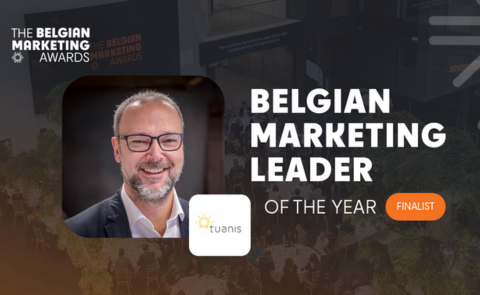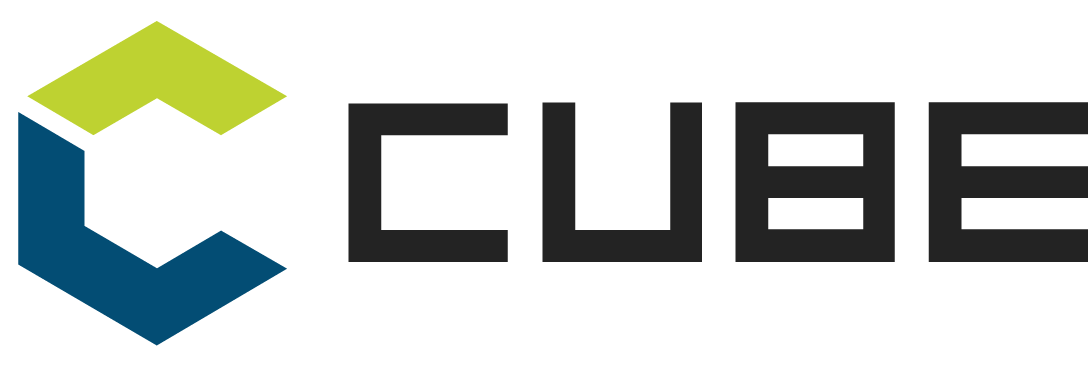
21 Oct Belgian Marketing Awards – Marketing Leader(ship) of the Year: Nicolas Lambert
One of the three candidates for the Marketing Leader(ship) of the Year Award goes by the name of Nicolas Lambert, ex-CEO of Fairtrade Belgium and author of “Le marketing peut-il sauver le monde. That he considers his nomination a good thing above all because it brings some extra attention to the much-needed sustainability transition says a lot about his motivations and authenticity.

“We must not let the future of our society depend on trends that come and go or consumer mood swings. I advocate always, in all the knots we make as marketers, to take sustainability into account.”
Nicolas Lambert had that message recorded in our Behind the association and the marketers column in the spring . To say he takes sustainability into account himself is an understatement. It is the common thread in everything he undertakes. After periods as marketing director (Unilever, AB InBev, Alken-Maes) and strategic director (Darwin BBDO), he became CEO of Fairtrade Belgium and has been leading the BAM Sustainability Think Tank for almost three years now. He also wrote the book “Le marketing peut-il sauver le monde” and the topic invariably comes up in his marketing classes.
“The six fine years I had the opportunity to spend at Fairtrade Belgium really immersed me in the fascinating world of sustainable development,” Nicolas Lambert reflects. “Since then, I have devoted myself to building bridges between ESG and marketing.” With success, proves his nomination for the Marketing Leader(ship) of the Year Award.
Sense of urgency
“Ever since my student days I have been fascinated by the positive impact that companies can have on society, beyond selling products and making a profit. So the interest was already there, but was strongly sparked by my time at Fairtrade. After all, when you visit an African farm, the effects of climate change become very tangible. A sense of urgency came over me: we have to adjust our economic model now. As a marketing guy, it was logical that I then started thinking about the role we can play in this.”
‘Tuanis helps organizations answering strategic questions at the crossroads of marketing, business and social purpose,’ reads the baseline of Nicolas’ consultancy. The focus on the concept of purpose does not surprise, although it is not synonymous with sustainability. “A brand’s purpose does not have to include all sustainability components at the corporate level. For example, Dove carries a nice purpose around body positivity, but it says nothing about the brand’s carbon footprint. Conversely, highly sustainable business practices are not automatically reflected in an explicit purpose-driven brand strategy. Both facets can occur together and reinforce each other, but do not mean the same thing.”
Guarding the balance between short and long term
It is, of course, no coincidence that Tuanis’ advisory services do not only address marketing, but also “business”. The sustainable change Nicolas Lambert hopes to stimulate in the business world is located primarily at the corporate level. “It’s really about the DNA of your brand, about making the organization and its activities sustainable. You can also translate those emphases into your brand positioning, but you absolutely don’t have to. In fact, that’s often a bad strategy.”
Nevertheless, there is the role that marketers can (and even should) include in this story. That is situated on multiple levels. “Marketing must guard the balance between the short term and the long term,” Nicolas gives a first – challenging – task to his peers. “In a difficult context with pressure from many directions, you are jointly responsible for what your company does now and how it faces the future. It’s about the changing needs of customers, but also of society as a whole. Because there’s no business on a dead planet.”
Collaboration
A second task has to do with sustainability as a common aspiration of brand and consumer. This does not have to be the case (“it was not the customer who urged Lidl to use only Fairtrade cocoa, that decision followed from an intrinsic commitment”) but if a brand is out to change the behavior of the public, marketers are obviously very important. “Encouraging that engagement does require a dose of customer centricity.”
That customer centricity reportedly requires above all empathy, immediately the code word Nicolas mentions most often in his advice to brands. “If you really want to touch people and influence them positively, you need to be able to put yourself in their shoes. You build on their concerns, aspirations and values with your marketing communications.” In practice, however, there is still much work to be done in this area. “All too often companies still impose their vision on the customer.”
Across the board, sustainability is a story of collaboration. Collaboration with customers, but also between and certainly within organizations. “In order to fundamentally transform our economic framework towards a more circular or regenerative variant, everyone – marketing, sales, R&D, finance, etc. – has to pull on the same sail. After all, the required transition has many layers and requires shared values and efforts.” In short, the answer to the title question of his book is “yes, but not alone.”
Trust, authenticity and leadership
At the marketing level, empathy is by no means the only key word. “Transparency and honesty are also essential,” Nicolas knows. “Only by working on these is it possible to stem the current trust crisis. That trust is particularly crucial in the sustainability domain, because that is where consumers are even more sensitive to exaggerations.”
One of the prerequisites of all that, without a doubt, is authenticity. A quality we can safely attribute to Nicolas Lambert himself as well. “Authentic and courageous, with those two words I can best describe Nicolas,” says Catherine Willemart on behalf of the selection committee. “It takes courage to take a radically different direction and go full for something. More than that, in a short time he has become one of the pioneers of sustainable marketing.” He himself remains modest about it, but his consistent vision, combined with his commitments as a thought leader, inspirer and empathetic bridge builder, makes him anything but a marketing leader to be proud of.
Moreover, it doesn’t stop at fine words and a ditto approach. Nicolas can also present concrete, impressive results, not unimportant in a dossier for the Belgian Marketing Awards. For example, during his time at the NGO, the share of Fairtrade chocolate in Belgium made a tremendous jump from less than 1% to more than 20%, thanks in part to a number of cleverly deployed marketing techniques. “If you want to change the world, you simply have to succeed in getting things moving.” It’s up to the jury to determine if that is also worthy of a Marketing Leader(ship) of the Year title.
Wondering how the judges assessed this case… The answer will follow on Nov. 6….
Register now for the ceremony of the Belgian Marketing Awards >
